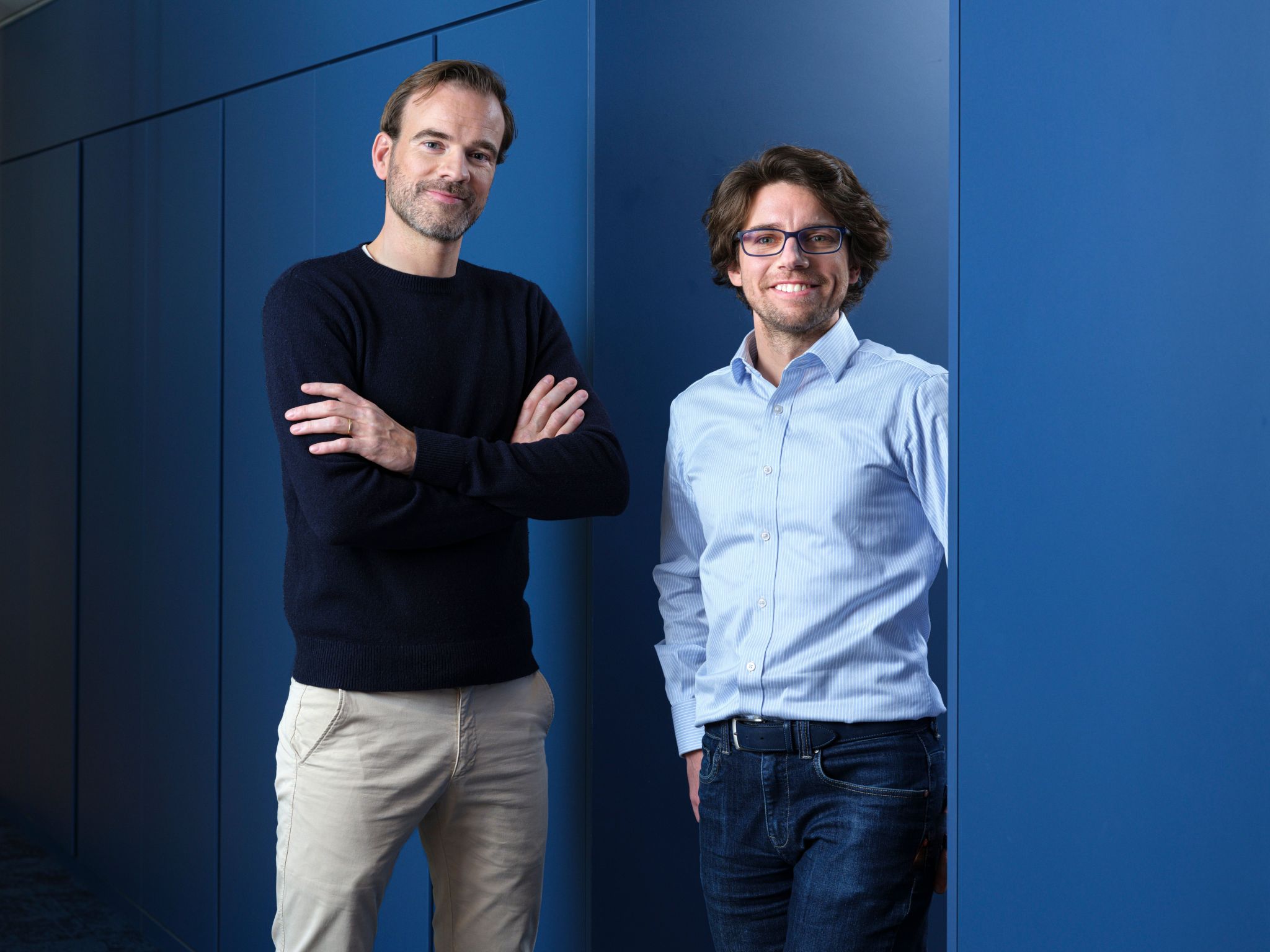
Sofinnova Partners’ Edward Kliphuis and Simon Turner (Source Sofinnova Partners' announcement on LinkedIn)
One example cited is Cure51, a startup focused on understanding exceptional cancer survivors. The company tested NVIDIA Parabricks, achieving 17x faster genomic data processing with H100 GPUs and more than 2x cost savings using L4 GPUs compared to CPU baselines. The collaboration is expected to compress analysis timelines from months to days.
Sofinnova Chairman Antoine Papiernik framed the initiative as part of the firm's broader Digital Medicine and Sofinnova.ai strategies. "By securing access to NVIDIA’s infrastructure, we're not just funding companies; we're empowering them with the computational backbone needed to outperform incumbents", he said, highlighting the importance of AI-driven approaches in reshaping drug discovery, precision medicine, and sustainability solutions.
A Look at the Stack
Bioptimus
Paris-based Bioptimus is developing large-scale foundation models for biology. The company emerged from leadership at Owkin and is led by Jean-Philippe Vert, former Chief R&D Officer at Owkin and ex-Google researcher. Bioptimus is building multi-modal models capable of reasoning across molecular, cellular, and tissue-level data. In 2024, the company launched H-Optimus-0, a 1.1B-parameter model trained on over 500,000 pathology slides, demonstrating strong performance in cancer detection and molecular subtyping.
With $76 million raised as of early 2025, Bioptimus is now scaling up toward a broader multi-scale biological foundation model, designed to support applications spanning drug development, diagnostics, and synthetic biology.
BioCorteX
London-based BioCorteX is developing a computational platform to model drug–microbiome interactions at scale. The company raised $5 million in seed funding in 2023 from Sofinnova Partners and Hoxton Ventures to develop its core platform, Carbon Mirror, which emulates how drugs interact with complex bacterial ecosystems in the human body. Powered by an underlying knowledge graph "Carbon Knowledge" spanning over 3 billion nodes and 16 billion edges, the platform enables discovery of hidden relationships between bacteria, host physiology, and pharmacology.
The platform has reportedly revealed previously unknown interactions between intratumoral bacteria and antibody–drug conjugates (ADCs), with implications for improving cancer treatment outcomes. BioCorteX’s approach, termed Unified Biology, integrates human physiology, disease states, and microbial dynamics, and has previously been supported by Google Cloud infrastructure.
Cure51
Cure51 is a French startup startup focused on understanding why a small number of patients survive far longer than expected, even with aggressive cancers. Backed by a €15 million seed round led by Sofinnova Partners in 2024, the company is building a global dataset focused entirely on these "super-survivors". Its Rosalind study, now active in the UK with Cambridge University Hospitals and seven other institutions, is collecting tumor samples from over 1,000 long-term survivors of glioblastoma, small cell lung cancer, and metastatic pancreatic cancer.
Cure51 integrates clinical, genomic, and spatial biology data to understand what makes these patients biologically different—and how that knowledge could translate into new therapies. The company has partnered with 10x Genomics for high-resolution tissue mapping and is using AI to reverse-engineer survival mechanisms from complex multi-omics data.
Latent Labs
UK-based Latent Labs is building generative AI tools that enable researchers to design novel proteins from scratch—shifting drug discovery from a search process to one of creation. Founded in 2024 by Simon Kohl, a former DeepMind researcher who co-led the AlphaFold2 protein design effort, the company raised $50 million in funding (including a $40M Series A co-led by Radical Ventures and Sofinnova Partners). Its platform allows biotech and pharma teams to create tailor-made therapeutic proteins, such as antibodies or enzymes, with optimized features like stability or binding affinity.
Rather than screening through existing molecular databases, Latent Labs aims to "make biology programmable" by letting users generate de novo molecules computationally, potentially bypassing wet-lab bottlenecks and shortening drug timelines. The team draws talent from DeepMind, Microsoft, Exscientia, and Mammoth Bio, with labs in London and San Francisco.
